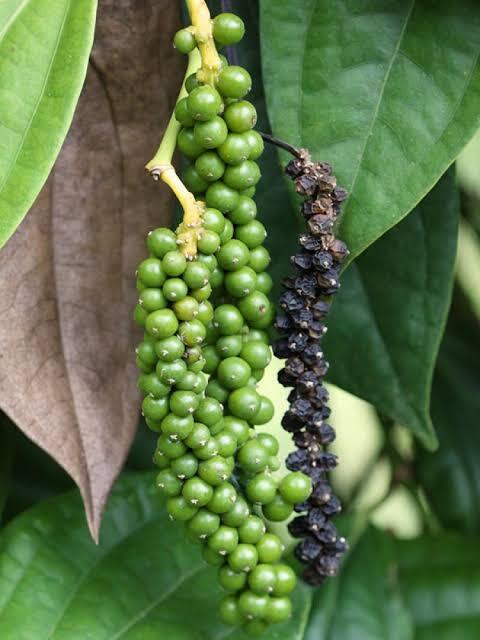Kerala's black pepper production has seen a sharp decline over the past decade, with an estimated drop of 8-10% in yield, according to Ramnath Thakur, Minister of State for Agriculture and Farmers Welfare. This information was revealed in response to a question raised by M.P. Abdussamad Samadani in the Lok Sabha.
Decline in Cultivation Area and Production
The Minister stated that the area under pepper cultivation in Kerala shrunk by 15%, from 85,431 hectares in 2014-15 to 72,669 hectares in 2023-24. This reduction in cultivated land led to a 25% drop in production, falling from 40,690 tonnes to 30,798 tonnes.
The major factors contributing to this decline include pests, diseases like foot rot, and climate-related challenges that have severely impacted black pepper farming in the state.
Impact of Floods on Black Pepper Farming
The devastating floods of 2018 and 2019 significantly affected black pepper production in Kerala. These floods hit at a time when pepper prices were already low, discouraging farmers from continuing cultivation. As a result, poor crop management led to further declines in yield. The Minister also noted that low prices persisted until 2021-22, causing further disinterest in black pepper farming.
Additionally, the lack of adequate soil and moisture conservation measures has resulted in the degradation of soil nutrition and moisture levels. Price fluctuations and the shift towards other high-value crops have also contributed to the decline in black pepper cultivation.
Trends in Black Pepper Exports
The export of black pepper from India has shown a fluctuating trend, primarily due to competition from other major producing countries. The price of Indian black pepper is generally higher than that of other countries, limiting its competitiveness in global markets. However, due to its superior quality, Indian black pepper retains a niche market where it is preferred over other varieties.
Measures to Support Pepper Farmers
To mitigate the decline in black pepper production, the Government has launched several initiatives under the Kerala State Horticulture Mission, which focus on:
- Providing high-quality planting materials
- Expanding cultivation areas
- Rejuvenating and rehabilitating aging plantations
- Enhancing post-harvest management and marketing infrastructure
Additionally, the Directorate of Arecanut and Spices Development (DASD), Kozhikode, along with Kerala Agricultural University (KAU) and the Indian Institute of Spices Research (IISR), Kozhikode, has implemented several programs, including:
- Production and distribution of superior planting materials
- Establishment of hi-tech nurseries
- Accreditation of black pepper nurseries in public and private sectors
- Rehabilitation programs for pepper gardens
Development of High-Yielding, Disease-Resistant Varieties
To improve productivity, research institutions such as IISR, the All India Coordinated Research Project on Spices, and KAU have successfully developed 21 high-yielding, disease-resistant black pepper varieties. These varieties now account for nearly 70% of the country’s black pepper cultivation area, significantly boosting productivity.
While Kerala's black pepper sector faces multiple challenges, ongoing government interventions, research advancements, and farmer support programs aim to revive and strengthen production levels. The adoption of high-yielding varieties and better farm management practices could help farmers overcome these challenges and sustain Kerala’s position as a key player in the global black pepper market.
Follow & Subscribe:
👉 Agri-Food Update on LinkedIn for the latest updates and insights.
🌐 Visit us at www.agri-food-update.com for more information!



